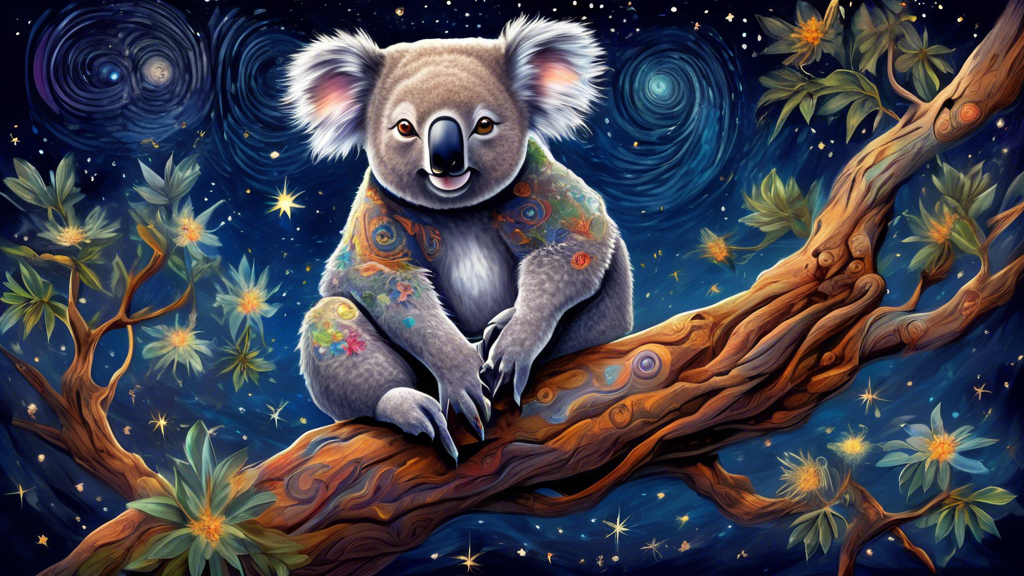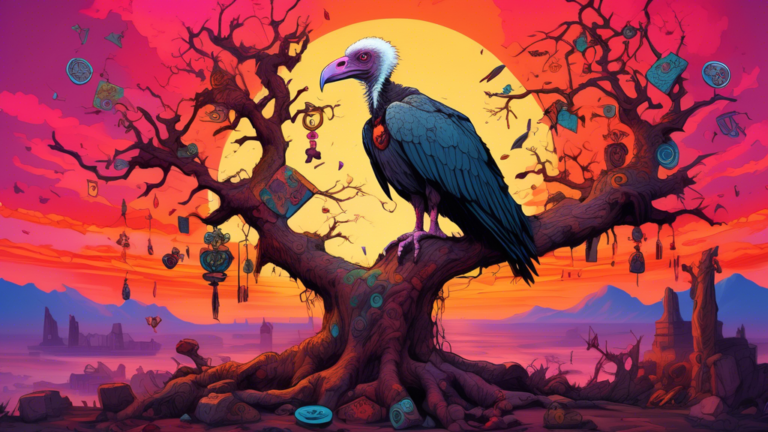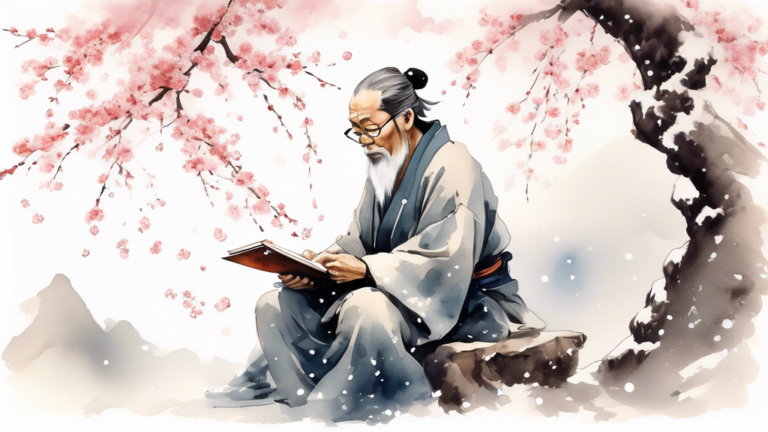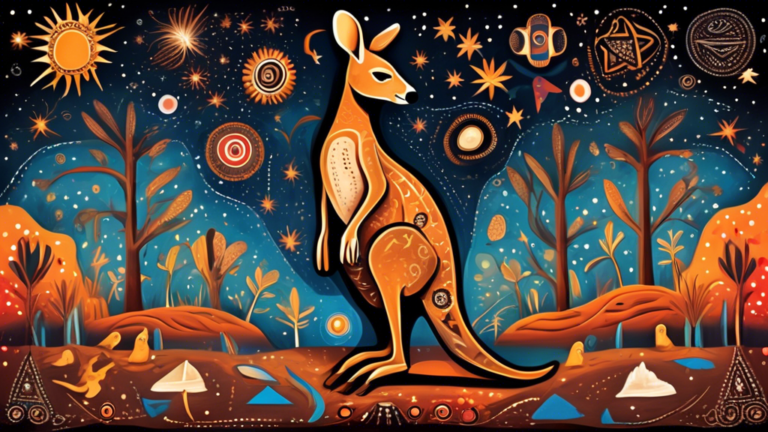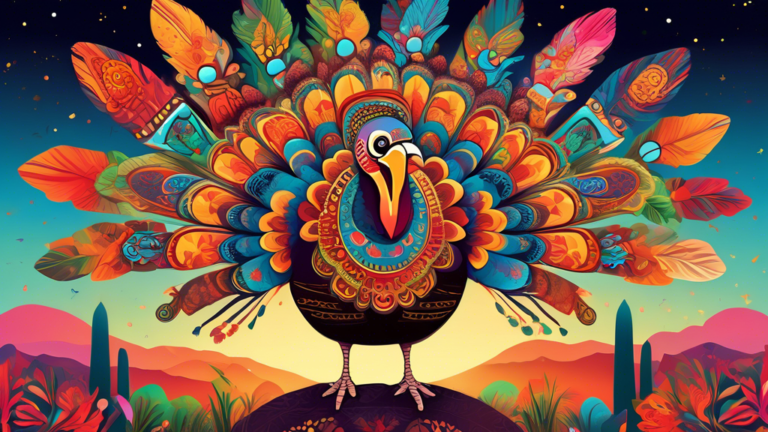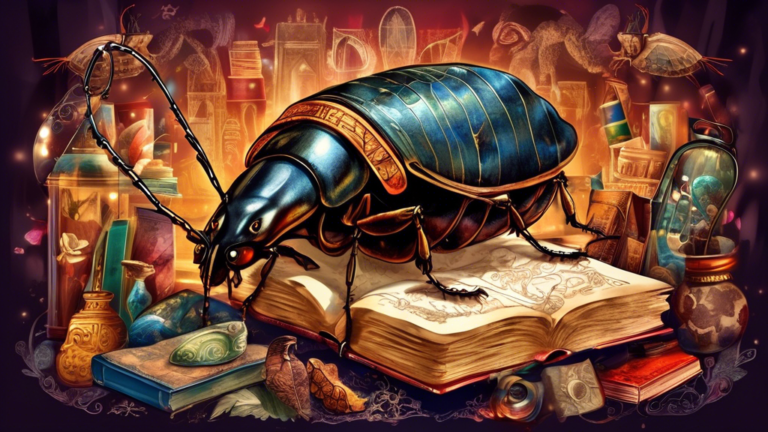Exploring the Symbolism of Koalas
Introduction to Koala Symbolism
The cuddly and serene koala is more than just a cute face in the eucalyptus trees. Across cultures and contexts, the koala bears significant symbolism and varying interpretations. Often perceived as gentle and calming, this marsupial has carved its niche not only within its natural habitat but also in the hearts of people worldwide.
This article will explore the rich symbolism of koalas, shedding light on their cultural significance and deeper metaphorical implications.
The Symbolic Meanings of Koalas
Koalas, native to Australia, are often associated with a variety of themes including peacefulness, motherhood, and protection. Their slow movements and laid-back lifestyle suggest a natural alignment with tranquility and relaxation, making them symbols of calmness and a stress-free existence.
Additionally, the koala’s primary diet of eucalyptus—a plant known for its soothing and medicinal properties—further enhances its association with healing and care.
Connection to Motherhood and Nurturing
The mother koala’s nurturing of her young is poignant and touching, with the joey spending up to a year in her pouch. This protective and tender behavior underscores the koala’s embodiment of motherhood and caregiving qualities.
In symbolic terms, koalas represent not just parental care, but also the importance of close familial bonds and the safeguarding of the young and vulnerable.
Symbol of Peace and Relaxation
Koalas spend a significant portion of their lives sleeping and resting, which conserves energy and reduces stress. This attribute makes the koala a powerful symbol of peace.
In today’s fast-paced world, a koala-themed image or item might be used to inspire or remind people to take time to unwind and embrace peace in their daily lives. The koala’s symbolism here is powerful, advocating for balance through rest and recuperation.
Cultural Significance in Indigenous Australian Lore
In Indigenous Australian cultures, the koala has its place in spiritual and customary lore. Aboriginal tales and art often depict the koala as a wise navigator that can find water and a survivalist that teaches resilience and resourcefulness.
Furthermore, in some Aboriginal languages, the word koala means no drink, referring to the animal’s rare need for water as it receives most of its hydration from eucalyptus leaves. This aspect builds the koala’s image as a symbol of adaptation and self-reliance.
Modern Symbolism and International Perception
Globally, the koala is frequently seen as an ambassador for Australia’s unique wildlife and a poster child for conservation efforts targeted at endangered species. As conservation awareness has increased, the koala has come to symbolize the broader struggle of animals facing habitat destruction and environmental threats. International affection for koalas plays a crucial role in driving ecological activism and prompting international cooperation on conservation issues.
Representation in Media and Popular Culture
In media and popular culture, the koala often appears as a character that epitomizes friendliness and a laid-back persona. Appearing in everything from children’s cartoons to advertising icons, koalas help project a warmth and approachable image that many brands and organizations aspire to. This often amplifies their role as creatures that bridge cultural boundaries and inspire universal goodwill.
Conclusion
The symbolism of the koala offers extensive insights into how a creature’s characteristics can be interpreted in myriad ways to offer lessons about life and survival. From nurturing and protection to peace and resilience, koalas bring profound symbolic meanings into the cultures that hold them dear.
Whether viewed through the lens of indigenous significance, ecological representation, or cultural charm, the koala remains a potent symbol in a world that increasingly values the connection between nature and humanity.
The Symbolic Meaning of Rhinos: Ancient Representations and Modern Associations
Exploring the Symbolic Meaning of Cheetahs

